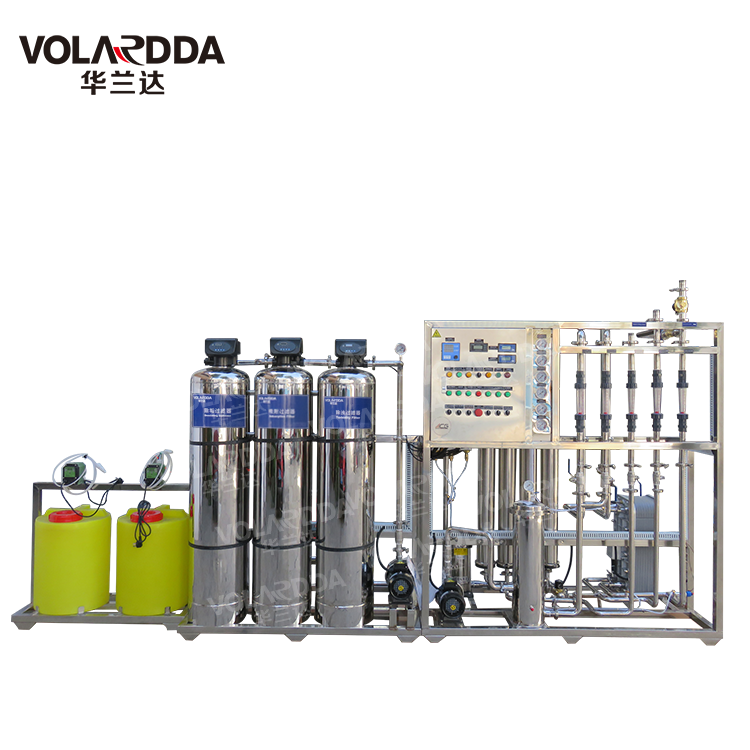
This is because the existence of these ions can not only cause agglomeration of creams and emulsions, but also age the skin. Therefore, deionized water must be used in the production of skin care products. In addition, water is the most widely used, cheapest and most abundant raw material in the production of cosmetics. Water has good solubility and is also an important emollient substance. Most cosmetics, such as shampoos, creams and lotions, contain a lot of water. Water plays an important role in these cosmetics. The quality of cosmetics production water directly affects the quality of the cosmetics production process and the final product. In order to meet the requirements of high stability and good usability of cosmetics, there are two requirements for the production water of cosmetics, including the concentration of inorganic ions and microbial contamination.

1. Most cosmetics require deionized water to reach the level of general pure water, so that the salt content is reduced to 1.0mg/L and the conductivity is reduced to 1~10μs/cm<25°C, or the resistivity is 0.1 megohm~1ΜΩ •Cm>. Most cosmetics require deionized water to reach the level of general pure water.
2. Another requirement of cosmetic water is to contain no or as few microorganisms as possible. Cosmetic hygiene standards stipulate that the total number of bacteria in general cosmetics should not exceed 1000/ml or more or less 1000/g; the total number of bacteria used in cosmetics for eyes, lips, and oral mucosa, and cosmetics for babies and children should not exceed 500/g, and Fecal coliforms, Pseudomonas aeruginosa and Staphylococcus aureus shall not be detected. Microorganisms can multiply in cosmetics, which will cause product corruption, produce peculiar smell, product separation and agglomeration, and cause harm to consumers.
Any water-containing cosmetics may grow bacteria, and the most common source of bacteria may be water itself. Therefore, modern cosmetics factories must use production water that is free of microbial contamination.